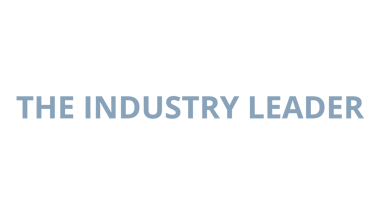The 57% Problem: Can We Fix America's Financial Education Crisis?
Only 57% financially literate? Dive into the stats, the struggles, and the solutions.
ONLINE COURSESKIRUNIVERSITY
Jeremiah Blunt
1/2/20242 min read


Unveiling the Roots and Ripples of America's Financial Illiteracy Problem



The American Financial Literacy Crisis: A 57% Gap and its Ripples
The statistic is stark: only 57% of American adults possess basic financial literacy, meaning many of them lack the knowledge and skills needed to make informed financial decisions. This statistic, backed by studies from the Federal Reserve Bank of St. Louis and the National Endowment for Financial Education, paints a worrying picture of a nation ill-equipped to navigate the complexities of personal finance.
How Did We Get Here? A Historical Crossroads
The roots of this crisis lie in a confluence of factors. Our education system, while improving, has traditionally neglected financial education, leaving many graduates unprepared for real-world financial challenges. The growing complexity of financial products and services, coupled with a rise in predatory lending practices, further disenfranchises individuals lacking financial literacy. Socioeconomic disparities also play a role, with lower-income communities often facing limited access to quality financial education resources.
Implications for Future Leaders and Entrepreneurs
The consequences of this financial literacy gap are far-reaching. Future business leaders, navigating a dynamic and competitive landscape, will face significant challenges. Entrepreneurs, especially those from diverse backgrounds, may struggle to secure funding, manage risk, and build sustainable businesses without a strong financial foundation. This ultimately hinders economic growth and social mobility, creating a vicious cycle of financial insecurity.
Education System's Shortfall: A Gaping Hole in the Curriculum
The education system bears a significant responsibility in this crisis. While some schools are incorporating personal finance into their curriculum, it often remains a neglected subject, overshadowed by standardised testing and core academic disciplines. This leaves students unprepared to deal with real-world financial issues like budgeting, saving, investing, and debt management.
KIRUNIVERSITY: Bridging the Gap with Unbiased, Accessible Education
KIRUNIVERSITY, recognizing this critical need, has emerged as a champion for equal access to unbiased business education. Their 'Financial Literacy in 3 Weeks' on-demand course directly addresses the gap in financial knowledge, providing individuals with the tools and skills they need to make informed financial decisions. This accessible, online platform caters to diverse learners, breaking down barriers to financial education and empowering individuals to take control of their financial future.
The Ripple Effect: Empowering Entrepreneurs, Strengthening Businesses
By equipping individuals with financial literacy, KIRUNIVERSITY creates a ripple effect. Entrepreneurs, armed with financial knowledge and confidence, can build stronger businesses, secure funding, and navigate the complexities of the market. This fosters economic growth, creates jobs, and contributes to a more inclusive and prosperous society.
The Road Ahead: A Call to Action
The statistic of 57% is not a mere number; it represents a call to action. We must collectively prioritise financial literacy, demanding its inclusion in school curriculums and advocating for accessible educational resources like those offered by KIRUNIVERSITY. By empowering individuals with financial knowledge, we can build a more secure future for ourselves, our businesses, and our nation.
In conclusion, the American financial literacy crisis is a complex issue with far-reaching consequences. By acknowledging the problem, addressing the shortcomings of our education system, and supporting initiatives like KIRUNIVERSITY, we can bridge the knowledge gap and empower individuals to build a brighter financial future for themselves and future generations. Let's not be defined by the 57%, but by the collective effort to rise above it.
Related Content
Get Connected
Stay up to date with weekly digests, product announcements, special offers and more.
Information published to or by The Industry Leader will never constitute legal, financial or business advice of any kind, nor should it ever be misconstrued or relied on as such. For individualised support for yourself or your business, we strongly encourage you to seek appropriate counsel.
Urikville Press Ltd © 2024


